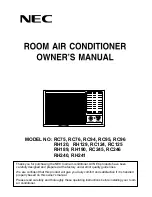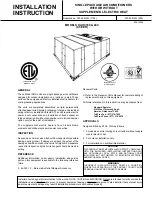
Code
Name
Standard/
Option
Technical data
(factory settings in parentheses)
© Vallox • We reserve the right to make changes without prior notification.
What the units include can vary depending on the sales area.
VALLOX 200SE
Voltage signal values
Parts list Vallox 200 SE, electric preheating unit
CO
2
Carbon dioxide sensor, 5 at most
Adjustment range 500...2000 ppm (900)
Option
Carbon dioxide control
Adjustment range 1...15 min. (10)
FG
Damper motor
Automatic HR bypass
Standard
24 V, 2 W, 5 Nm
H
Control panel, 3 at most
Setting, operation, display
1 included
as standard
S
Booster/fireplace switch function
Either booster or fireplace switch
Standard
operation (booster switch)
LON
LON converter
Remote monitoring control
Option
LP1
Preheating unit
Electric radiator 2.0 kW
Option
LP2
Post-heating unit
Electric radiator 1.0 kW
Option
LP2
Post-heating unit
Water radiator 3.0 kW 70/55
°
C
Option
HR
Heat recovery cell
Counter-current,
= 80%
Standard
PDS1 Pressure difference switch unit
Adjustment range 0...500 Pa (320)
Option
Pressure guard on
the supply air side
PDS2 Pressure difference switch unit
Adjustment range 0...500 Pa (320)
Option
Pressure guard on
the extract air side
PF
Extract air fan
qv = 220 dm
3
/s (100 Pa)
Standard
%RH
Humidity sensor, 2 at most
Adjustment range 20...55% (50)
Option
Humidity control
Adjustment range 1...15 min. (10)
SU
Filter
Supply air G4 + F7, extract air G4
Standard
TE1
Temperature sensor
Exhaust air temperature
Standard
HR cell antifreeze,
Adjustment range -6...+15
°
C (heat recovery)
preheating control
Adjustment range -6...+15
°
C (preheating)
TE2
Temperature sensor
Supply air temperature
Standard
TE3
Temperature sensor
Outdoor air temperature
Standard
TE4
Temperature sensor
Extract air temperature
Standard
TF
Supply air fan
qv = 190 dm
3
/s (100 Pa)
Standard
TZ1
Overheat protection
Automatic (+60
°
C, self-resetting)
Included in
for the heating element
LP1/LP2
(electric)
TZ2
Overheat protection
Manually reset (+95
°
C)
Included in
for the heating element
LP1/LP2
(electric)
SV
Water radiator control valve
Included in
LP2 (water)
0
0,20…1,25
1
1,75…2,25
2
2,75…3,25
3
3,75…4,25
4
4,75…5,25
5
5,75…6,25
6
6,75…7,25
7
7,75…8,25
8
8,75…10
Voltage values for each fan speed:
Control of operation
Power supply to the unit can be controlled with a contactor in the distribution panel if needed, e.g. with a
timer programme. After starting, the unit first operates at minimum power. After that power is adjusted
based either on the measurement data from air quality sensors and/or on manual control at the control
panel.
Fan speed adjustment
Manual control
Fan speed of the ventilation unit is controlled in 8 steps at control panel
H
.
Week clock control
Fan speed of the ventilation unit is controlled in 8 steps using the week clock in control panel
H
. The week
clock can be used to programme the desired fan power option for each hour in the day.
Carbon dioxide and humidity control
The fan power of the ventilation unit is controlled in multiple steps depending on loads and based on the
measurement results of the air quality sensors (
CO
2
and
%RH
sensors) located in the ventilation zone.
The aim is to keep carbon dioxide and/or humidity content below the threshold set at control panel
H
.
One or more modes of control may be used simultaneously – the mode demanding boosting is the
dominant one. Fan speed varies depending on load between the base and maximum fan speeds. The
base and maximum fan speeds can be set at the desired level at control panel H.
Control through voltage signal
The fan capacity of the ventilation unit is controlled in 8 steps with a voltage signal of 0…10 V DC.
However, fan power cannot be raised above the maximum fan speed set. Voltage signal is used to control
base fan speed. Manual control and carbon dioxide and humidity adjustments can raise fan speed if
needed but cannot decrease it.
Supply air temperature
Supply air temperature can be controlled with either constant temperature control or cascade control.
Supply air constant temperature control
The control unit directs the operation of post-heating unit
LP2
on the basis of the measurement data
given by temperature sensor
TE2
, aiming at keeping supply air temperature at the temperature value set
on control panel
H
(+10…+30 ˚C).
Supply air cascade control
The control unit directs the operation of post-heating unit
LP2
on the basis of the measurement data
given by extract air sensor
TE4
, aiming at keeping extract air temperature at the temperature value set
on control panel
H
(+10…+30 ˚C).
Heat recovery bypass
Heat recovery is enabled whenever post-heating has been switched on. Automatic heat recovery bypass is
active whenever post-heating has been switched off and outdoor temperature exceeds the setpoint (to be
set at 0...+25
°
C). In this case, the control unit directs the operation of damper motor
FG
on the basis of
measurement results given by outdoor temperature sensor
TE3
and extract air temperature sensor
TE4
.
The aim is to get as cool supply air to the ventilation zone as possible. However, heat recovery is always
active when outdoor air temperature is below the set threshold value.
Heat recovery antifreeze
The control centre of the unit controls the operation of preheating unit
LP1
on the basis of the measure-
ment data of temperature sensor
TE1
, preventing freezing alerts and the stopping of supply air fan
TF
. If
the capacity of preheating unit
LP1
is not sufficient, the control centre keeps stopping supply air fan
TF
on the basis of the measurement data on temperature sensor
TE1
, thus preventing the
HR
cell from
freezing. As soon as the risk passes, the fan restarts automatically. The threshold temperature (-6...+15
°
C) and the difference area (1...10
°
C) for antifreezing can be set at control panel
H
.
Water radiator freeze protection
The control centre of the unit stops fans
TF
and
PF
on the basis of the measurement data in outdoor
temperature sensor
TE3
(outdoor air < 0
°
C) and supply air temperature sensor
TE2
(supply air < 7
°
C),
thus reducing the risk of freezing in water heating unit
LP2
. A freezing alert appears in the display of the
control panel. The fans restart automatically as soon as the risk of freezing passes (supply air > 10
°
C).
Overheat protection for the heating element
Overheating protection thermostats
TZ1
and
TZ2
monitor the surface temperature of heating units
LP1
and
LP2
. If surface temperature exceeds the threshold, overheat protection is triggered and power supply
to the heating unit is stopped. Overheat protector
TZ1
is reset automatically and
TZ2
manually.
Alarms
Pressure difference switches
PDS1
and
PDS2
monitor the pressure difference on the supply and extract
air sides. If the pressure difference rises too high because of dirty filters or clogged ducts, an alarm will be
issued. This is indicated by a symbol ( ) in the main display of the control panel. If the unit is not equipped
with pressure difference switches, the symbol ( ) appearing in the main display of the control panel re-
minds of the need of servicing the unit. The reminder interval can be set between 1 and 15 months.The
factory setting is 4 months. This function is always active.
The fault signal relay gives potential-free alarm indications on the following fault conditions:
• When the antifreeze function of the water-circulating radiator is on, the contacts of the the relay close
and open at 10-second intervals.
• An alarm of high carbon dioxide content (> 5000 ppm ) switches the relay at 1-second intervals.
In other fault situations, such as sensor faults, the contacts of the relay close.
Booster or fireplace switch function
The booster or fireplace switch function of the ventilation unit is controlled either at control panel
H
and/or
with a separate switch
S
, which can be connected to the connection box of the unit. The mode of operation
of the switch is selected at control panel
H
.
The booster switch function raises fan speed to the set maximum fan speed for 45 minutes. The fireplace
switch stops the extract air fan for 15 minutes and produces overpressure in the ventilation zone.
LON remote monitoring control can be implemented with a Vallox LON conver-
ter.
13
DESCRIPTION OF OPERATION, electric preheating unit






































